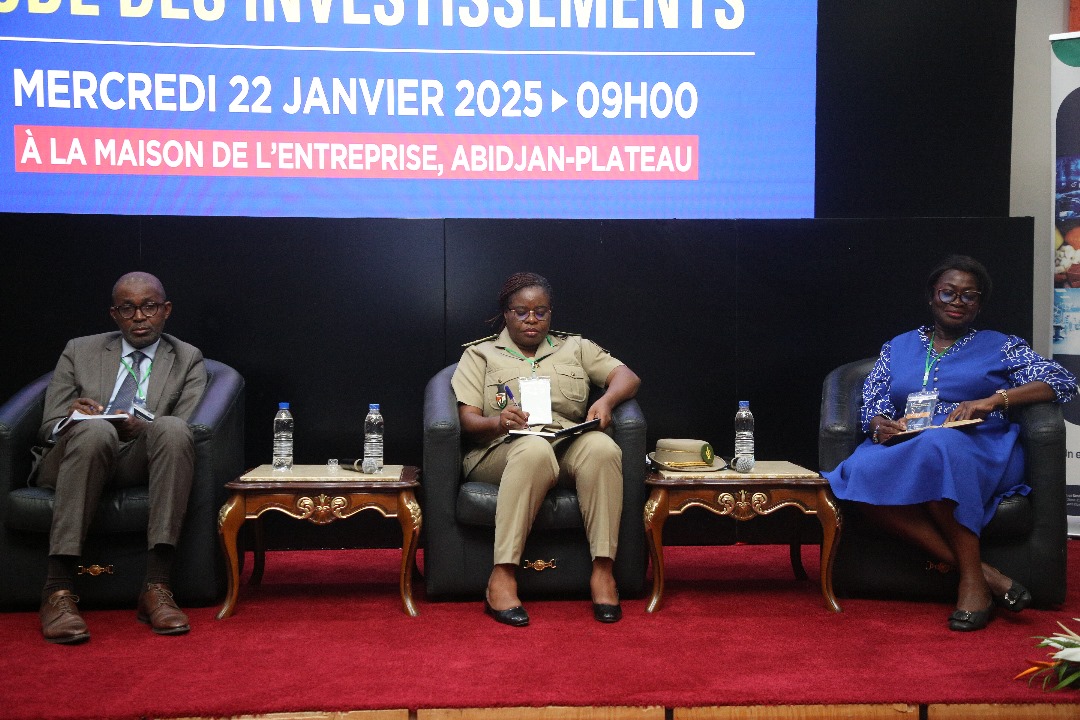This activity, according to the initiators, aimed to provide necessary information to the private sector so that it can adopt the provisions set by this instrument, both during the investment phase and the operational phase.
Although reformed, the Investment Code, as stated by Solange Amichia, Director General (DG) of Cepici, remains faithful to its foundational goals: to enable the government to attract investments, diversify the economy, create sustainable jobs, and accelerate industrial and economic development while respecting the environment and the Labor Code. « The Code stimulates investment, highlights priority sectors of the economy, and promotes inclusive economic development across the national territory by respecting obligations and creating sustainable jobs », emphasized Ms. Amichia.
Representing Ahmed Cissé, President of the CGECI, Vice-President Mamadou Koné emphasized the role of the employers' organization in working for the growth of its members by helping them seize all opportunities to prosper. The workshop on spreading the Code, led by the Business and Environmental Competition Commission (CEAC), was designed with the goal of CGECI supporting Ivorian companies « so that they can adopt existing fiscal and customs provisions in order to effectively benefit from the incentives and advantages offered to investors». Mr. Koné expressed satisfaction that Cepici, through its reforms, has made the provisions of the Investment Code simpler, more efficient, and better adapted.
In their respective presentations, Sandrine Tegnan, an expert at Cepici, and Fulgence Kouamé, Deputy Director of Assessment Operations at the Directorate General of Taxes (DGI), presented measures likely to attract investments, with a special focus on Local Content, that is, for national investments. Regarding the reforms of the Code, Sandrine Tegnan mentioned, among other things, « the introduction of Category 1 for projects that process local raw materials, including the second and third stages of wood processing. The introduction of Category 2 for the processing of imported raw materials ».
She also highlighted the increase in the minimum investment threshold for large shopping centers, which rises from 10 billion to 30 billion CFA francs. In the Code reform, Sandrine Tegnan noted that sectors such as first-stage wood processing, cement production, importation of butane gas bottles for bottling plants, operation of concrete plants, packaging of imported products, and the acquisition and importation of packaging for finished products are excluded from exemption. According to the expert, the reform includes plans for digitalization for the reception and monitoring of files, as well as the securing of data and administrative documents.
For his part, Fulgence Kouamé indicated that the incentives in the Code are fiscal and customs-related. In practice, he explained that investors could benefit from exemptions on customs duties, temporary suspension of Value Added Tax (VAT), or VAT exemptions for companies in agriculture, agro-industry (processing of local agricultural raw materials), health, hospitality, and second and third-stage wood processing.
The presentations led to exchanges followed by B2B meetings to allow economic operators to present their specific issues to Cepici experts.



